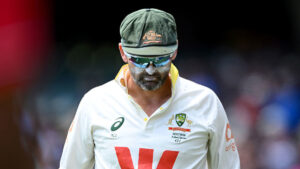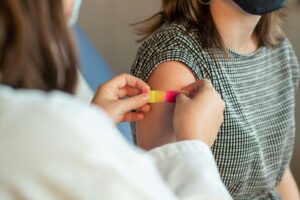
A Royal Hobart Hospital surgeon is urging Tasmanian women to prioritize regular breast screening, emphasizing that early detection can boost survival rates to as high as 99%. Dr. Gausihi Sivarajah, a general surgeon specializing in breast surgery, highlighted the critical role of screening in identifying cancer before symptoms appear.
“Regular screening is the most effective way for early detection of breast cancer because it’s identifying the disease before the symptoms actually appear,” Dr. Sivarajah stated. “It increases the chance of survival and also enables women to access a wider range of treatment options which are less invasive and more effective.”
Importance of Early Detection
Dr. Sivarajah, who treats patients with a range of breast conditions from benign to cancerous, also serves as the clinical director at BreastScreen Tasmania. She pointed out that the statistics are compelling – the overall five-year survival rate for breast cancer in Australia is approximately 91%.
“But when we look at those who are diagnosed early or stage one, that five-year survival rate rises to 99%,” she said.
Breast cancer remains the most common cancer among women and the second leading cause of cancer-related death, after lung cancer. The announcement comes as health professionals worldwide continue to stress the importance of early diagnosis in improving patient outcomes.
Personal Motivation and Professional Dedication
Dr. Sivarajah’s passion for breast cancer care is partly driven by personal experiences, having seen several close friends battle the disease. “Seeing what they went through reinforced in me how important patient-centred care is,” she remarked.
She noted that modern treatment options have significantly advanced, providing women with more choices and better outcomes. “Being able to offer those expanded surgical options for women, especially those facing breast cancer, made the field a lot more compelling for me,” Dr. Sivarajah explained.
Comprehensive Approach to Diagnosis and Treatment
The process of diagnosing breast cancer typically involves a combination of physical examinations, mammograms, ultrasounds, and biopsies. Treatment plans are highly individualized and can include surgery, radiotherapy, chemotherapy, hormone therapy, or immunotherapy.
Dr. Sivarajah emphasized her commitment to promoting breast health awareness and improving patient outcomes. “I’m really committed to promoting breast health awareness,” she said. “I really want to strive to improve outcomes for individuals.”
Looking Ahead: The Future of Breast Cancer Care
As breast cancer continues to impact countless lives, the push for early detection and advanced treatment options remains a top priority for healthcare providers. Dr. Sivarajah’s advocacy for regular screening and patient-centered care highlights a broader trend in the medical community towards personalized and proactive healthcare strategies.
Meanwhile, ongoing research and technological advancements promise to further enhance the effectiveness of breast cancer treatments, offering hope to patients and their families. The move represents a significant step forward in the fight against one of the most prevalent cancers among women.
As the conversation around breast cancer evolves, the focus remains on empowering women with the knowledge and resources they need to take charge of their health. With continued efforts from dedicated professionals like Dr. Sivarajah, the future of breast cancer care looks increasingly promising.






